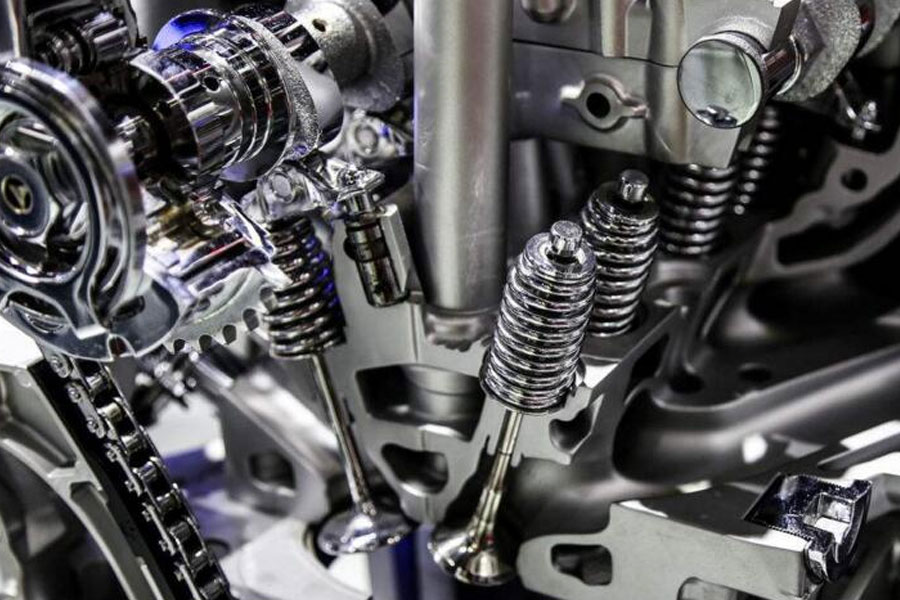We all know that aluminum is widely used in life and industry, and there are many kinds of surface treatment methods for aluminum. There are usually anodizing treatment, chemical conversion treatment, micro-arc oxidation treatment, electroplating treatment, electroless plating treatment or surface organic coating (spraying). Powder or spray paint) and so on. And the most widely used process is anodic oxidation, so why is anodic oxidation “favored”?

The anodizing process of aluminum alloy and aluminum parts has a wide range of applications in industry. It can be used to prevent corrosion of products or achieve the dual purpose of protection and decoration, such as wear-resistant layer, electrical insulation layer, spray paint bottom layer and electroplating bottom layer.
1. Prevent corrosion of aluminum products
Since the film layer obtained by anodic oxidation has sufficient stability in the atmosphere, the oxide film on the aluminum surface can be used as a protective layer. The oxide film obtained by anodic oxidation of aluminum in chromic acid solution is dense and has good corrosion resistance; the oxide film obtained from sulfuric acid solution has larger pores than the former, but its film layer is thicker and has strong adsorption capacity. With proper filling and sealing treatment, its corrosion resistance is also very good. In particular, the chromic acid anodizing method is particularly suitable for the anodizing treatment of riveted parts and welded parts.
2. Protection-decorative products
For most aluminum and its alloy products that require surface finishing, after chemical or electrochemical polishing, anodized oxidation film with sulfuric acid solution can be used to obtain an oxide film with higher transparency. This kind of oxide film can absorb many kinds of organic dyes and inorganic dyes, so it has a variety of bright colors. This color film is both an anti-corrosion layer and a decorative layer. Under some special process conditions, a protective and decorative oxide film similar in appearance to porcelain can also be obtained.
3. As a hard wear-resistant layer
By hard anodizing aluminum and aluminum alloys, a thick and hard Al2O3 film can be obtained on the surface. This film not only has high hardness and thickness, but also low roughness. In sulfuric acid or oxalic acid solution, a hard and thick oxide film can also be obtained on aluminum products by anodizing.
The porous thick oxide film can store lubricating oil, so it can be effectively applied to aluminum products that work under friction, such as the engine cylinders and pistons of automobiles and tractors after being anodized, which can greatly improve their wear resistance.
4. As an electrical insulating layer
The oxide film obtained after anodization of aluminum and aluminum alloy products has a large resistance, so it has a certain effect on improving the electrical insulation of some products. Anodization can be used to prepare the dielectric layer of the capacitor, or it can be used Aluminum oxide prepares an insulating layer for its surface.
5. As the bottom layer of spray paint
Due to the porosity and good adsorption capacity of the anodic oxide film, it can be used as the bottom layer of spray paint and other organic films, so that the paint film and organic film can be firmly combined with the product, thereby increasing its corrosion resistance.
6. As the bottom layer of electroplating
Before aluminum and aluminum parts are electroplated, a bottom layer must be applied to them before electroplating. There are many methods for applying the bottom layer on the surface of the substrate. In addition to electro-galvanizing, dipping zinc, and electroless nickel plating, anodizing is also one of the important methods.
I believe that through the above 6 points, everyone should understand the reasons why anodizing technology is widely used. In addition to being widely used in industry, anodizing is also “favored” in the field of science and technology. Many innovative electronic devices are applied to anodizing. It is believed that in the future, aluminum alloy anodizing technology will be applied to more fields.
Link to this article:Why Is Anodic Oxidation “Favored” In Aluminum Parts Surface Treatment?
Reprint Statement: If there are no special instructions, all articles on this site are original. Please indicate the source for reprinting:https://www.cncmachiningptj.com/,thanks!
 Sheet metal, beryllium, carbon steel, magnesium, 3D printing, precision CNC machining services for heavy equipment, construction, agriculture and hydraulic industries. Suitable for plastics and rare alloys machining. It can turn parts up to 15.7 inches in diameter. Processes include swiss machining,broaching, turning, milling, boring and threading. It also provides metal polishing, painting, surface grinding and shaft straightening services. The production range is up to 50,000 pieces. Suitable for screw, coupling, bearing, pump, gearbox housing, drum dryer and rotary feed valve applications.PTJ will strategize with you to provide the most cost-effective services to help you reach your target,Welcome to Contact us ( [email protected] ) directly for your new project.
Sheet metal, beryllium, carbon steel, magnesium, 3D printing, precision CNC machining services for heavy equipment, construction, agriculture and hydraulic industries. Suitable for plastics and rare alloys machining. It can turn parts up to 15.7 inches in diameter. Processes include swiss machining,broaching, turning, milling, boring and threading. It also provides metal polishing, painting, surface grinding and shaft straightening services. The production range is up to 50,000 pieces. Suitable for screw, coupling, bearing, pump, gearbox housing, drum dryer and rotary feed valve applications.PTJ will strategize with you to provide the most cost-effective services to help you reach your target,Welcome to Contact us ( [email protected] ) directly for your new project.
Link to this article:Why Is Anodic Oxidation "Favored" In Aluminum Parts Surface Treatment?
Reprint Statement: If there are no special instructions, all articles on this site are original. Please indicate the source for reprinting.:ODM Wiki,thanks!^^